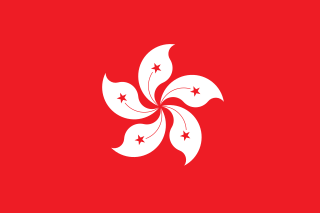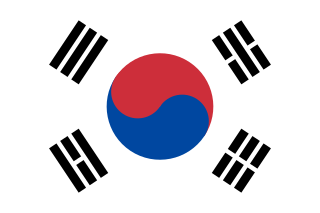For the third edition of the Dynasty Cup, football tournament of East Asia, Hong Kong welcomes the competition, matches taking place in the Hong Kong Stadium and in the Mong Kok Stadium.
The competition brings together the national selections of football of South Korea, of China, of Japan (holding in the title), and of course the host country Hong Kong.
The tournament brings together all the teams in one group, the first two qualifying for the final of the tournament. The other two selections play a match for the third place.
A victory reported three points, a draw one point, and a loss zero point.
Champion in the Dynasty Cup, the Japan emerges from a FIFA Confederations Cup disastrous, eliminated in the first round against the Argentina and Nigeria (two losses, 8 goals conceded to one marked). Despite this route to quickly forget the Samurai Blue remain a reference in Asian football, winners of the last Asian Cup. There is no doubt that the men of coach Shu Kamo arrive in this competition to retain their title, and to prepare the next Asian Cup in a year.
For South Korea, the trajectory is quite different. Delicacy in the Asian zone (not qualified for the last Asian Cup in 1992), as soon as the competition became international zone, the Red Devils become more effective, evidenced by their probative qualification for the 1994 World Cup. Although that eliminated in the first round, South Korea is not ashamed of his career, after two draws against Spain and Bolivia, and a defeat on the wire against Germany (3-2). Winners of the first edition of the Dynasty Cup, South Koreans want to remember the good memories of the other regional selections and take the full of confidence before the start of the playoffs for the next Asian Cup.
For China, this competition is also a good preparation for the next playoff of the Asian Cup 1996. Value of the Asian zone, the Great Wall has more missed an Asian Cup since 1976, but this regularity does not exceed excellence, and no major trophy came at the moment to shine the showcase of the Chinese selection. It is therefore time for the men of the coach Qi Wusheng to pass a cap and finally win a first competition worthy of the name.
Last selection in the tournament, Hong Kong, as host country, knows that adversity is, at least on paper, superior. His last participation in a somewhat important competition dates back to 1975, in the Merdeka tournament. Since always presents in the qualifying round for a qualification in Asian Cup or a World Cup, the Hong Kong selection fails to participate in the finals. For this edition of the Dynasty Cup, it is represented by the Hong Kong League XI, football team composed entirely of players who plays in the first division of the Hong Kong Championship, included foreigners.
On February 19, 1995, the third edition of the Dynasty Cup begins.
Taking the title, the Japan opens the ball facing the Hong Kong selection. The Thai referee gives the kickoff, and 29,000 spectators of the Hong Kong Stadium see his favorite give the change to the Samurai Blue, when Hisashi Kurosaki wrong goalkeeper Hong Kong just before halftime (41st). The hardest is made for the Japan, and finally Hong Kong yields after game time, enclosing two new goals (Tetsuji Hashiratani at the 70th, Kurosaki at the 78th). Score final 3-0 to Japan, which is still very hard to beat in this competition.
In the other game of the day, China faces South Korea, and the 24,000 spectators from the stadium see the clock scroll slowly but surely, to finally let resound final whistle with a score of 0-0.
Two days later, the South Koreans are on the lawn of the Hong Kong Stadium to confront the Japan. With already three points to the meter, the Japanese selection knows that in case of victory, qualifying for the final of the tournament will be practically acquired. For the Red Devils, after a first match draw, only victory is in line of sight. The Hong Kong Stadium is lined with 14,000 spectators, the sri Lankan referee gives the kickoff, and the 22 players to complete the first half with a score of 0-0. Barely returned from the locker room, the Samurai Blue take the advantage thanks to Hisashi Kurosaki (47th), who then signs his third goal in the competition. The time turns and the Red Devils do not want to leave the tournament prematurely, and eventually Lee Woo-Young found the fault at the 67th minute. Score final 1-1, the Japan does not lose and rest firmly at the head of the group, South Korea will play everything on his last match.
In the other game, the Great Wall knows beating Hong Kong selection, it can take a serious option for a place in the final. But Hong Kong players from the heart, and despite some attempts, the game ends with a score of 0-0. Two points in two games, the Chinese selection does not advance, no goal, no cash no also, and always stays in the race for the final if it wins the last game against the Japan.
And this game arrives two days later, but the Chinese selection is soon overtaken by a decidedly Japanese selection in leg, in the image of Toshiya Fujita who opened the score at the 16th minute, before the prolific Kurosaki scored his fourth goal of the tournament six minutes later. Despite the reduction of the score of Gao Feng, China finished its tournament by a 2-1 defeat, and is now awaiting the outcome of the confrontation between Hong Kong and South Korea for its future in the Dynasty Cup.
For South Koreans, a simple match none selecting Hong Kong face enough to face Japan in the final. But Lee Ki-Hyung wants to win, and gives the advantage to the Red Devils at the 15th minute. Hong Kong supporters expect then a correction, but Ross Greer, Australian player, even five minutes later. The match became interesting, and Ko Jeong-Woon allows its teammates to return to the locker room leading to the score by scoring at the 39th minute. 64th minute, Tim Bredbury arises and equalizes for Hong Kong, the Red and White give nothing. It goes all right to the share of the points, but finally Choi Yong-Soo completes the pride of the eleven Hong Kong and snatches the victory at the 89th minute. Score final 3-2 for South Korea, which validates his ticket to the finals of the Dynasty Cup.
On 26 February, the day begins with the game for third place, confrontation between a valiant Hong Kong team and a proud Chinese selection.
Hong Kong Stadium displays 27,000 spectators, the Thai referee gives the kickoff, and Leslie George Santos pulls a cry of joy in the stands as early as the second minute of play. The Great Wall is picked cold early in the match, but Li Bing delivers both teams tied for half-hour. 1-1, the score no longer moves despite the extra time, and this third place will play in the meeting of the penalties. This small game, the Hong Kong selection takes over and wins 3 shots to 1.
Later in the day, the Dynasty Cup 1995 final against Japan, champion in title, to South Korea. More than a game, it's regional supremacy that it is.
The kickoff is whistled, and Masahiro Fukuda made the South Korean net after two minutes. Clap of Thunder in the Hong Kong Stadium! The Red Devils are back in the game, and even even through his young defender of 20 years-old Lee Ki-Hyung. The half ends on this score of 1-1, and time flies when Motohiro Yamaguchi wrong Korean goalkeeper at the 87th minute. Best time to take advantage is said to be on the bench for the Samurai Blue, but decidedly Lee Ki-Hyung has the temperament, and he scored his second goal of the match in stoppage time. What a match! Need Extra time for the winner of the game, but none of the two teams not taking the ascendant on the other, the name of the Dynasty Cup 1995 champion will be decided in the session of the penalties, as in the previous edition.
And finally, the Japanese shooters make full carton, prevail 5 shots to 3, and the Japon wins for the second time in his history the Dynasty Cup.
With 4 goals scored during the competition, the Japanese striker Hisashi Kurosaki of Kashima Antlers was topscorer of the Dynasty Cup 1995.



